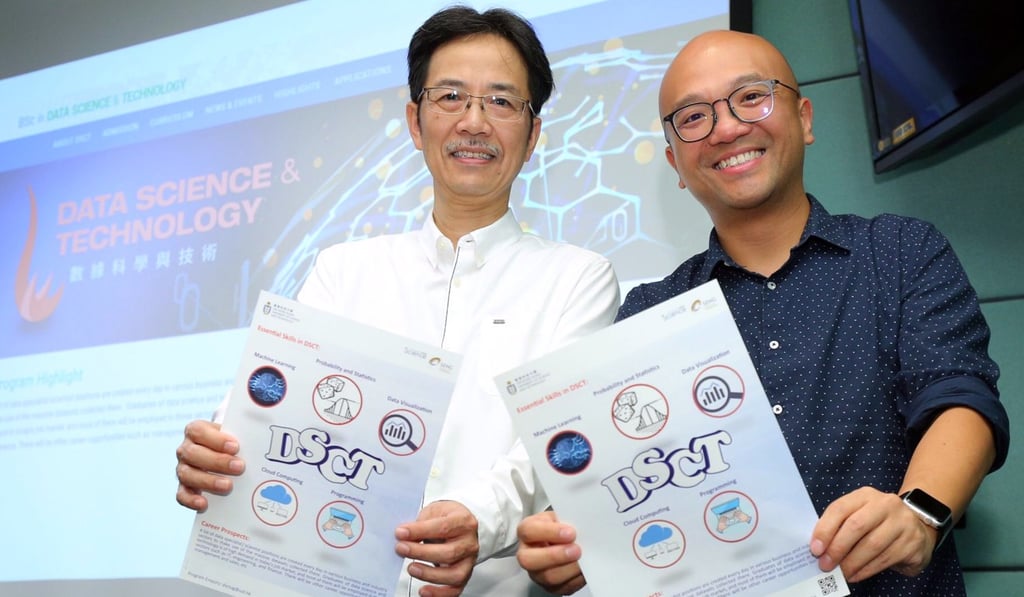Hong Kong university offers new data science programme, eyeing tech industry boom
With city – and many global industries – increasingly prizing data skills, HKUST launches specialised course

Nora Ngai Nok-yiu has been studying computer programming since secondary school and decided to do an engineering degree when she joined the Hong Kong University of Science and Technology last year.
But when the institution decided to launch a new undergraduate programme specialising in data science — using scientific techniques and theories to extract knowledge from data — Ngai jumped at the opportunity to choose it as her major.
During the four-year bachelor of science in data science and technology course, Ngai will sharpen her skills in statistics and coding, among other things, to solve complex data problems.
“Many industries, both public and private organisations, are using more data,” 19-year-old Ngai said. “They will need more professionals to sort the data and to find useful information from it. I think the career prospects are great, so I chose this programme.”

Jointly run by HKUST’s maths and computer science departments, the programme – introduced this year – is the first in the city to cater to undergraduates and to have a strong tech focus, its associate director, Professor Wilfred Ng Siu-hung, said.